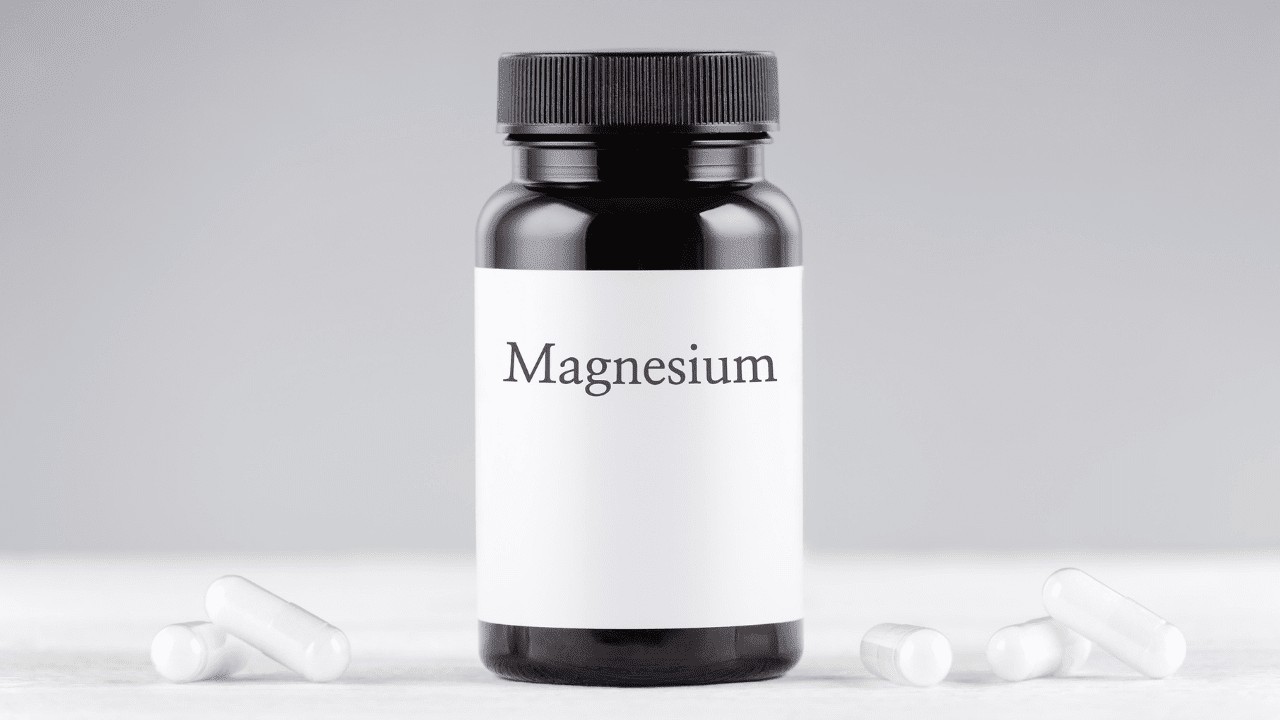In the dynamic realm of neuroscience, brain plasticity—also known as neuroplasticity—stands out as a testament to the brain’s remarkable ability to adapt, rewire, and grow throughout life. Neuroplasticity is the foundation of learning, memory formation, and recovery from injuries such as strokes or traumatic brain events. Emerging evidence highlights magnesium glycinate, a highly bioavailable form of magnesium, as a key player in enhancing neuroplasticity and cognitive resilience.
This article explores the pivotal role of magnesium glycinate in supporting brain plasticity and fostering cognitive adaptability, supported by cutting-edge research and practical insights.
You May Also Like:
The Science of Magnesium Glycinate and its Impact on Brain Function
How Magnesium Glycinate Supports Mental Resilience in Teens: The Science You Need to Know
Magnesium Glycinate and Brain Plasticity: Enhancing Cognitive Resilience is an original (HSLHealing) article.
Understanding Brain Plasticity and Its Importance
Brain plasticity refers to the brain’s ability to reorganize neural pathways in response to experiences, learning, or damage. It underpins cognitive processes such as:
- Memory Formation: Encoding and retrieving new information.
- Learning: Developing new skills or adapting to changes.
- Recovery: Healing and regaining function after neurological damage.
Factors that influence neuroplasticity include:
- Age: While plasticity peaks in early life, the brain remains malleable into adulthood.
- Environment: Enrichment and stimulation enhance neuroplasticity.
- Nutrition: Deficiencies in key nutrients like magnesium impair neural adaptability.
Statistic: A 2020 study in Nature Reviews Neuroscience emphasized that optimal neuroplasticity reduces the risk of cognitive decline by 35%, even in aging populations.
Boost Cognitive Resilience and Brain Plasticity with Magnesium Glycinate—Buy Now on Amazon!

The Role of Magnesium in Neuroplasticity
Magnesium is a fundamental mineral for brain health, influencing key processes that drive neuroplasticity:
- Regulating Synaptic Plasticity: Magnesium modulates the activity of NMDA (N-methyl-D-aspartate) receptors, which are critical for synaptic strength and long-term potentiation (LTP), a process associated with memory and learning.
- Enhancing Neural Communication: Magnesium facilitates the transmission of electrical signals between neurons, ensuring efficient communication in the brain.
- Reducing Neural Inflammation: Chronic inflammation impairs neuroplasticity. Magnesium lowers pro-inflammatory markers, creating a conducive environment for cognitive adaptability.
- Protecting Against Oxidative Stress: By supporting antioxidant enzymes like superoxide dismutase, magnesium safeguards neurons from oxidative damage.
Clinical Insight: Magnesium deficiency has been linked to reduced neuroplasticity, impaired memory, and increased susceptibility to neurodegenerative diseases (Journal of Neuroscience, 2019).
Why Magnesium Glycinate Is Ideal for Cognitive Resilience
Magnesium glycinate, a chelated form of magnesium bound to glycine, offers unique advantages for brain health:
- High Bioavailability: Its chelated structure ensures efficient absorption and delivery to the brain, where it supports neural functions.
- Calming Effects: Glycine, an inhibitory neurotransmitter, complements magnesium’s role in reducing neural hyperexcitability and promoting relaxation.
- Gentle on Digestion: Unlike other forms of magnesium, such as magnesium oxide or citrate, magnesium glycinate minimizes gastrointestinal discomfort.
Magnesium Glycinate and Its Impact on Neuroplasticity
- Enhancing Memory and Learning
Magnesium plays a central role in LTP, the process by which neurons strengthen their connections in response to repeated activity. LTP is crucial for memory and learning. - Study Highlight: A 2020 randomized controlled trial in Frontiers in Aging Neuroscience found that magnesium supplementation improved working memory and spatial learning in older adults, suggesting enhanced neuroplasticity.
- Promoting Neural Adaptation
Neuroplasticity is essential for adapting to new environments and challenges. Magnesium’s influence on NMDA receptor activity supports this adaptability. - Research Insight: A 2018 study in Neuropharmacology revealed that magnesium supplementation increased synaptic plasticity in the hippocampus, a brain region critical for learning and memory.
- Supporting Recovery from Neurological Injuries
After a stroke or traumatic brain injury, neuroplasticity enables the brain to reorganize and regain lost functions. Magnesium’s neuroprotective properties accelerate recovery by reducing inflammation and supporting neural repair. - Clinical Evidence: A 2019 study in Stroke reported that magnesium levels were directly associated with better outcomes in stroke rehabilitation, underscoring its role in enhancing brain plasticity.
Enhance Your Cognitive Function and Mental Wellness with Magnesium Glycinate—Buy Today on Amazon!

Reducing Barriers to Neuroplasticity: Magnesium’s Anti-Inflammatory Role
Chronic inflammation disrupts neuroplasticity by impairing synaptic function and promoting neural degeneration. Magnesium combats inflammation by:
- Inhibiting Pro-inflammatory Cytokines: It reduces levels of IL-6, TNF-alpha, and CRP, markers of inflammation that impair cognitive function.
- Modulating Microglial Activity: Overactive microglia, the brain’s immune cells, contribute to neuroinflammation. Magnesium calms microglial activation, preserving neural health.
Statistic: A 2021 meta-analysis in Nutrients showed that magnesium supplementation reduced inflammatory markers by 25%, creating an optimal environment for neuroplasticity.
Addressing Stress and Anxiety to Foster Neuroplasticity
Stress and anxiety impair neuroplasticity by overstimulating the HPA axis and increasing cortisol levels, which disrupt neural connectivity. Magnesium glycinate mitigates these effects by:
- Lowering Cortisol: Magnesium regulates the HPA axis, preventing cortisol from damaging neural circuits.
- Enhancing GABA Activity: Magnesium increases GABA, a calming neurotransmitter that counteracts the excitatory effects of stress.
- Improving Sleep Quality: Restorative sleep is essential for synaptic pruning and memory consolidation. Magnesium glycinate promotes deep, restorative sleep, enhancing brain recovery.
Clinical Trial: A 2017 study in Behavioural Brain Research found that individuals supplementing with magnesium glycinate experienced a 32% reduction in perceived stress and improved cognitive performance under pressure.

Supporting Brain Plasticity Across the Lifespan
Magnesium glycinate supports neuroplasticity in various life stages:
- In Children and Adolescents: During periods of rapid learning, magnesium enhances cognitive development and attention.
- In Adults: It supports adaptability, creativity, and stress management in demanding work environments.
- In Aging Populations: Magnesium slows age-related cognitive decline and reduces the risk of neurodegenerative diseases like Alzheimer’s.
Statistic: The Alzheimer’s Association (2022) reports that maintaining optimal magnesium levels can reduce the risk of cognitive decline by up to 20%.
Practical Benefits of Magnesium Glycinate for Cognitive Resilience
- Improved Focus and Attention: By modulating neural excitability, magnesium glycinate enhances sustained attention and reduces mental fatigue.
- Faster Recovery from Mental Strain: Magnesium’s role in ATP production ensures the brain quickly replenishes energy stores after cognitive exertion.
- Reduced Risk of Neurodegenerative Diseases: Its antioxidant and anti-inflammatory properties protect against conditions like Alzheimer’s and Parkinson’s.
Combining Magnesium Glycinate with Other Strategies to Enhance Neuroplasticity
To maximize the benefits of magnesium glycinate, consider integrating it with complementary strategies:
- Cognitive Stimulation: Engage in activities like puzzles, learning a new skill, or playing a musical instrument to boost neuroplasticity.
- Physical Exercise: Aerobic exercise promotes the release of brain-derived neurotrophic factor (BDNF), a protein that supports neural growth.
- Healthy Diet: Incorporate foods rich in magnesium (spinach, almonds, avocado) alongside omega-3 fatty acids and antioxidants for comprehensive brain support.
- Mindfulness Practices: Meditation and yoga reduce stress, enhancing the brain’s ability to adapt and learn.
Elevate Your Mental Wellness with the Daily Power of Magnesium Glycinate—Buy Now on Amazon!

Dosage and Safety Considerations
- Recommended Dosage: For cognitive benefits, 200–400 mg of elemental magnesium per day is generally recommended. Consult with a healthcare provider for personalized advice.
- Timing: Take magnesium glycinate in the evening to leverage its calming effects and improve sleep quality.
- Safety: Magnesium glycinate is well-tolerated, but individuals with kidney disease should consult a healthcare provider before use.
Conclusion
Magnesium glycinate offers a natural, science-backed solution for enhancing neuroplasticity and cognitive resilience. Its role in regulating synaptic plasticity, reducing inflammation, and mitigating stress makes it an invaluable tool for supporting brain health across the lifespan. Whether you’re aiming to boost memory, adapt to new challenges, or protect against cognitive decline, magnesium glycinate provides a versatile and effective approach to optimizing neuroplasticity.

References
- Magnesium and aging. Retrieved from: https://pubmed.ncbi.nlm.nih.gov/20388094/
- Magnesium in Aging, Health and Diseases. Retrieved from: https://www.mdpi.com/2072-6643/13/2/463
- Enhancement of Learning and Memory by Elevating Brain Magnesium. Retrieved from: https://www.sciencedirect.com/science/article/pii/S0896627309010447
- The Effects of Magnesium Supplementation on Subjective Anxiety and Stress-A Systematic Review. Retrieved from: https://pubmed.ncbi.nlm.nih.gov/28445426/
- Magnesium in the Central Nervous System. Retrieved from: https://www.ncbi.nlm.nih.gov/books/NBK507256/
- Magnesium and aging. Retrieved from: https://pubmed.ncbi.nlm.nih.gov/20388094/
- Interleukin-6, C-Reactive Protein, Tumor Necrosis Factor-alpha as Predictors of Mortality in Frail, Community-Living Elderly Individuals. Retrieved from: https://pmc.ncbi.nlm.nih.gov/articles/PMC4321727/
Important Note: The information contained in this article is for general informational purposes only, and should not be construed as health or medical advice, nor is it intended to diagnose, prevent, treat, or cure any disease or health condition. Before embarking on any diet, fitness regimen, or program of nutritional supplementation, it is advisable to consult your healthcare professional in order to determine its safety and probable efficacy in terms of your individual state of health.
Regarding Nutritional Supplements Or Other Non-Prescription Health Products: If any nutritional supplements or other non-prescription health products are mentioned in the foregoing article, any claims or statements made about them have not been evaluated by the U.S. Food and Drug Administration, and such nutritional supplements or other health products are not intended to diagnose, treat, cure, or prevent any disease.

